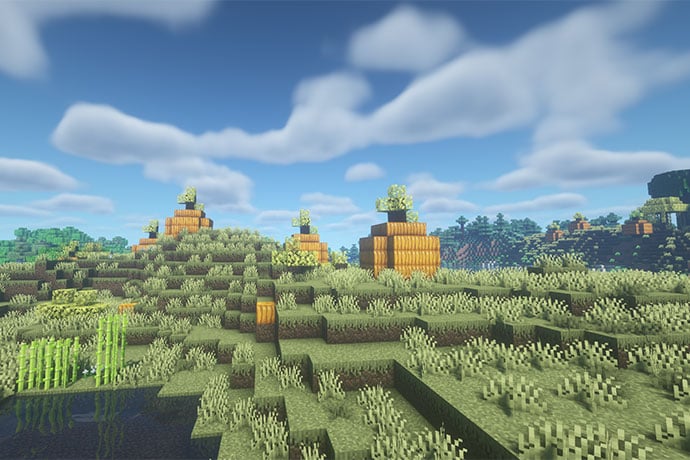As he says, Boone B Gorges rules. He’s also a cool guy. More seriously, he’s a PhD in the humanities who also has done major software development work helping build the City University of New York (CUNY) Academic Commons, one of the first comprehensive online communities for a university. He also played a significant role in the design and development of Commons in a Box, an easy to install online community.
Boone also is Lead Developer for the BuddyPress project and has done lots of work with plugins, in particular, Anthologize (converts WordPress content into PDF and ebooks) and Participad (like Google Docs but in WordPress).
Boone grew up in Appleton, Wisconsin. He went to Cornell and CUNY Graduate Center. He’s also taught at Queens College and Hofstra where he first got involved in software technology and publishing tools, as you’ll see.
Tim: Do you remember how you first heard of WordPress?
Boone: When I was teaching Ethics classes at Hofstra in the mid 2000s, I wanted my students to write in a public space with each other as the audience. I had used and supported blogging software in the graduate student fellowship I held at Queens College. But the blogging software there was Movable Type Enterprise, software I did not have access to at Hofstra. WordPress.com on the other hand did exist. Plus it was, and still is, free to use.
I did have friends who used WordPress throughout CUNY. I knew people who had used it in the classroom. So I started using it at Hofstra in my classes.
Tim: You still used WordPress.com instead of downloading and installing it?
Boone: I didn’t want to take time to learn all about server configuration. I was a graduate student in Philosophy.
Tim: How did you get involved with the CUNY Academic Commons?
Boone: When I joined Twitter, around 2008 and 2009, one of my CUNY WordPress friends tweeted he had a weird IE float issue and asked if anyone could help. So I helped this guy out a little bit. Turned out it was Matt Gold who is Project Director of CUNY Academic Commons, which then was in very early development. He had thrown WordPress on a server. He had reached the limits of his knowledge. I started fixing little things, mostly CSS, and from there I started getting into the guts of WordPress, plugins, and the beta of BuddyPress.
Tim: That also was your intro to BuddyPress?
Boone: It was dumb luck that I stumbled into software development at all and WordPress. Maybe it was the zeitgeist. Now we look at WordPress as a dominant player. But in 2008 it was only on its way up.
WordPress has a low barrier of entry to people who are tinkerers by nature. The fact you can put raw PHP into a template file, or a functions file, or most anywhere else, that’s what makes WordPress easy to get into. You see so many people involved with WordPress who don’t come from a technology background. Many come from the humanities.
Tim: Do you have formal university software development training?
Boone: I have no training at all. My college degrees were in Philosophy, Russian, and French. I was a logician with a foundation in mathematics. After I got into building software and thinking about abstraction and reusability, then there was a merging of what I learned as a philosopher and what I did as a developer. But that was completely accidental. I don’t have computer science experience.
Tim: Have you found that is a detriment? Maybe you make more mistakes?
Boone: There’s something to be said for not knowing what you’re doing and not knowing how bad you are, or might be. When you have enough self-awareness, it can be terrifying, where you’re afraid to go out on a limb with your invented solutions because you know you don’t fit in with this particular tradition or orthodoxy. I didn’t know that stuff. It removed the fears of naivete. That’s probably putting a nice spin or side effect to a bad thing, not having formal training.
The things WordPress and BuddyPress do are in themselves kind of easy. Basically you put stuff into a database then pull it out to display in a web page. You don’t need to know algorithms. The stakes are different than corporate software development. You really have to be a specialist to be a software programmer in the corporate world.
Tim: What do you think works well in the educational environment? Do you find the uptake is really strong year in and year out? Do students collaborate? Or is their involvement more social?
Boone: When I started working in education technology, in 2005, most people who had heard of blogging wanted to know why did they have to have a journal? It’s like when Twitter launched and people asked, “Why do I want to know what you had for breakfast today?”
People in academia are highly trained to be insular, trained to be cautious, protective of their ideas, skeptical, thoughtful. They’re also wary of certain kinds of criticism. Very few were interested in doing public work with students. That was a hard sell. Having a blog is part of the cultural sensibility today in a way it wasn’t then. It’s part of the professional identity.
Students are a different story. Students have incomplete ideas about what constitutes publicness. On the one hand, they’re on Facebook posting pictures of themselves getting drunk, they’re on their phones, it is very comfortable. On the other hand, students engagement in public is not fully formed or critical. They don’t understand who is reading it. Their sense of audience is incomplete. I tell them this is public and will show up in a Google search.
In fact, at Hofstra, I recruited fellow grad students to come into the student blogs and comment on their work. The students freaked out. They posted their writing for class but it also became public. They never considered that “public” might extend beyond their friends and family and school.
Students are pretty game to try new things. If you make the interface friendly, the collaboration part comes naturally. Then it becomes a question of faculty setting up the right assignments and set the right tone so students feel comfortable about collaborating online. It’s less about technology than changing pedagogies.
The fact you have open tools like BuddyPress, in contrast to Facebook and Blackboard, the fact there is something like BuddyPress free like beer, customizable, people can control their own presence, it makes collaboration feasible. If the only tools out there were private, and expensive, teachers might not use the technology. With WordPress, BuddyPress, and similar open source tools, students work in an environment that fits the educational environment.
Tim: Are there any guidelines to help teachers and students shape course work?
Boone: When I was in the classroom, the first thing I did was assemble examples of the different models for using blogs in classrooms. There was the hub and spoke model for blogging, a home page with teacher as primary author with announcements and assignment. Then there is the blogroll model which would roll up blogs with students responsible for reading and commenting on each others work. Students had their own blog spaces. With something like journals, you want a strong author voice where students choose their own themes.
Another model for blog use is a group blog where authorship rotates. Students kind of say, why are you teaching the class, why do we have to teach? However, you learn more that way.
Really the guidelines I had were to come up with paradigms and models to give faculty a starting place. They could see how the technology could fit into their courses. To convince skeptical faculty, I was able to demonstrate the technology does work. Teachers can teach. Students can learn.
We also did technology workshops to teach faculty the ropes. We’d have monthly meetings of teachers at a lunch round table to talk about how things were going, about how to talk with students about their privacy, talk about how to grade, how to give student feedback. These discussions were a great way to get people talking to create a little community around the use of these tools.
Tim: How does WordPress compare to other education software?
Boone: I’m skeptical of building software that is a swiss army knife for educational uses. They all share a common form: they are a junk drawer of miscellaneous tools. They all have forums, a grading thing, assignment submission, a handful of what you expect to see. Some are terrible, like Blackboard. Some are visually slick. But fundamentally they aren’t different from Blackboard. The model they follow is “teachers need a delivery mechanism to give content to their students.” These tools, including MOOCs, are a distribution mechanism. They’re like television.
WordPress and BuddyPress have roles to play. WordPress is people writing for an audience, linking to content, constructing arguments and narratives. Writing classrooms should use WordPress because it’s a great writing tool. Same with BuddyPress.
If you look at Blackboard or other LMS, all have a social add on. You have a big junk drawer and you slap on social. I like to think of it the other way round. Provide a social space for genuine engagement then think how your class fits into that. You’re trying to get people to talk in meaningful ways, to build empathy, to workshop ideas. Academics should ask what part of these tools overlaps with my classroom goals? Then use the tools to meet their goals. I’m skeptical we need classroom-specific tools.
Tim: Your Participad plugin makes it possible for real time interaction between teachers and students. It’s not cookie-cutter software.
Boone: People have asked me what they can use Participad for in the classroom. To be honest, I don’t know. I say collaborative note taking. The reason I’m non-plussed is because it is so new. This is radically new to have people participate in real time with many voices heard at the same time. The tools are not quite there yet. But we want to have faculty pick them up and the users will figure out how to make the most of the technology.
The whole ethos of the That Camp is hyper collaborative, no organization. Having a tool like Participad which mirrored the structure of the conference, a blank canvas where people can work together, that was cool. In contrast, the traditional WordPress post is one author at a time.
Tim: What has been interesting, frustrating, and rewarding about Commons in a Box? How did you come up with that idea?
Boone: Technically Commons in a Box is an installer for BuddyPress and a bunch of plugins people will want. It started from there, from evolving BuddyPress for CUNY Commons.
Once CUNY Commons was up, we got requests from all over the world asking us to tell them how to do the same. Commons in a Box is not only one-off software but a community project where people can come for support, share their work, and contribute to the project. What I’ve seen anecdotally, people who otherwise could not set up a community site now can in half an hour. People who never could have done it before can create powerful online communities.
Tim: As a freelancer, how do you manage all these projects?
Boone: At first, I took all comers to put food on the table. Since then I’ve started to be more selective.
I like to work on projects that benefit people. For example, I only take on work where certain intellectual property restrictions are removed. I don’t do non-disclosure agreements (NDAs). Part of it is my market, working for universities. When we start talking, I say, here’s a chance to work with me for the public good, by having my work for them be included in free open source software projects. They see it as part of their larger mission. The code I create for them will benefit other people, other schools. They are happy to have my work released publicly.
Sharing code also reinforces the whole purpose of education, which is about openness. I give my university clients the legal language they need to allow my work to be shared as open source software. Every time I work with a new university, I work with them to include language to share my coding work. So far there are no instances where that has not worked, with 10-12 universities.
I don’t think all WordPress developers can do this. However, when I work with the legal departments to build the language, the language becomes part of the university’s repertoire they can use with future developers. Universities have dealt exclusively with proprietary companies and their contracts reflect it. My work helps expand their language to include contractors whose work is in the public domain. I feel I’m doing good that way.
Tim: Do you still stand at a desk when you work?
Boone: I’m standing now, as we speak. To be honest, a few weeks ago, at my parents house, I spent a week working on a computer curled up on a couch, I felt terrible, like an old man. I had to stand up and stretch. At home here I have my enormous desk with enormous monitor. I feel like I’m on the Starship Enterprise.
Below are links to Boone’s blog and projects. I also highly recommend his article about CUNY and the Blackboard LMS.
Learn More
Teleogistic
http://teleogistic.net/
http://boone.gorg.es/
https://twitter.com/boone
http://teleogistic.net/2012/09/wordpress-in-education-meet-the-free-software-community-and-vice-versa/
http://teleogistic.net/2011/09/i-develop-free-software-because-of-cuny-and-blackboard/
CUNY Academic Commons
BuddyPress
Commons in a Box (CBOX)
CBOX takes the complexity out of creating a Commons site, helping organizations create an online space where their members can discuss issues, collaborate on projects, and share their work.
http://commonsinabox.org/
Participad
Real time collaboration for WordPress.
http://participad.org/
http://teleogistic.net/tag/participad/
Anthologize
Use the power of WordPress to transform online content into an electronic book.
http://anthologize.org/
http://teleogistic.net/tag/anthologize/










